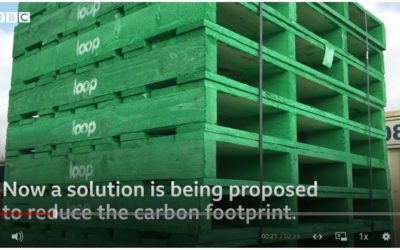Sustainability in the Finishes and Interiors Sector
FIS is committed to taking a pro-active lead, not just in supporting the UK ambition to net zero carbon by 2050, but delivering profound transformation within our supply chain on all aspects of ethical and environmental sustainability.
In this toolkit we look at some of the key actions that you can take and also some of the wider sector initiatives that can support your business in setting a sustainability strategy. The aim is to support companies in meeting the ethical and environmental aspects of sustainability considered from the three dimension of planet, people and profit across the entire construction supply chain. Definitions of sustainability do vary, but focus is on where our sector can make a positive impact in line with the UN Sustainability goals and the Net Zero agenda in the UK.
FIS 10 Golden Rules for Waste Reduction
Introducing Sustainability
General Principles
Relevant Literature
Reuse
Sector Specific Activities
Flooring
Plasterboard
Ceilings
How to measure sustainability
Sustainability related to your activities
Sustainability related to your organisation
Training
FIS has partnered with the Supply Chain Sustainability School
Zero carbon resources for finishes and interiors
Free-to-access training materials, videos, webinars and resources.
FREE sustainability learning pathway “‘FIS Sustainability Awareness: Doing Business Better”.
Sustainability Headlines
CLC and ITN Launch Co-production ‘Building a Greener Britain’
The construction industry is playing its part in transforming its working practices and leadership models to contribute to the global ambition for a net zero future. The Construction Leadership Council (CLC) has partnered with ITN Productions Industry News to produce...
Measuring your carbon footprint in the finishes and interiors sector
FIS and the Supply Chain Sustainability School are collaborating to help deliver Net Zero in the finishes and interiors sector through a new virtual training portal hosted on the Supply Chain Sustainability School website. This sustainability training hub is another...
Consultation on Plastic Packaging Tax (General) Regulations 2021
The Plastics Packaging Tax is due for introduction on 1 April 2022 and HMRC is looking for businesses' views on the technical application of the regulation. The consultation closes on 1 December 2021 and details are available here. The Primary legislation establishing...
Government Mandates Carbon Reduction Plans
Contractors bidding for central Government contracts worth more than £5 million a year are now required to provide a Carbon Reduction Plan. Plans must be updated at least once a year and meet the standard set out in Procurement Policy Note (PPN) 06/21, which includes...
World-leading Environment Act becomes law
Legislation that will protect and enhance the environment for future generations has now passed into UK law. Through the Act, we will clean up the country’s air, restore natural habitats, increase biodiversity, reduce waste and make better use of resources. It will...
FIS Signs Pallet LOOP Charter
Through the FIS Sustainability Leadership Group, the trade body representing the £10 billion fit-out, finishes and interiors sector became the first trade body to sign the Pallet LOOP Charter. The charter is focussed on delivering a simple way of actively eliminating...
FIS Events
Path to Net Zero
The CLC Roadmap to Recovery has laid out proposals to secure the future of construction, while setting the industry on a sustainable path towards recovery. But what does this mean to projects in our sector.
Calculating your carbon footprint
As the industry is becoming more aware of the urgency to work towards net zero carbon targets, it is important that organisations start measuring their carbon footprint.






